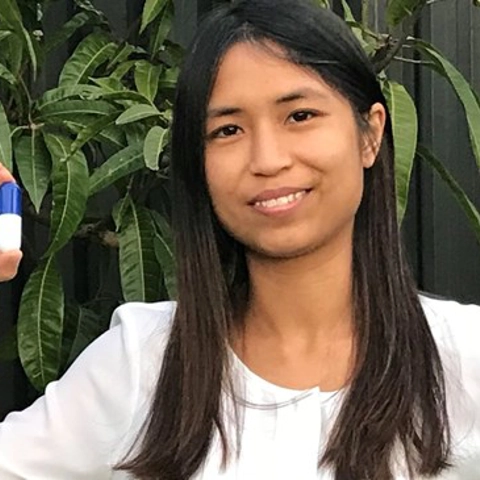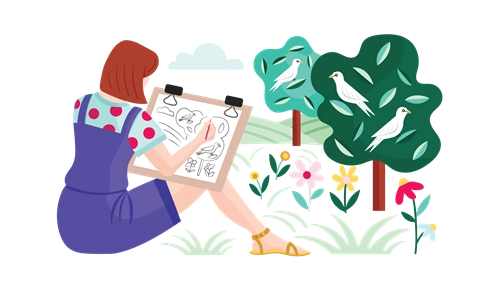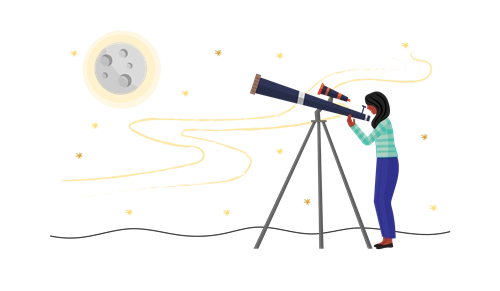Michelle Ta

Michelle Ta
Scientific Advisor
"Follow what energises you and motivates you"
Show pathwayFavourite school subjects
- English
- Japanese
- Science
Elective choices
- Chemisty
- Biology
- Mathematics
Higher education choices
- Bachelor of Pharmacy
- Doctor of Medicine
Career path in STEM
- Medical Science Liaison
- Scienctific Advisor specialising in Cardio-renal pharmeceuticals
Drawn to science
I’ve always loved science, but I never knew exactly what to do with it! To complicate matters, in high school I was interested in a variety of subjects: in Years 11 & 12 I took English, Maths, Chemistry, Biology, and Japanese. This somewhat mixed bag meant deciding upon a university degree and career path was troublesome. My initial plan was to study Veterinary Science as I was (and still am) intrigued by animal science, but I changed tack and selected a Pharmacy degree when I realised that I wanted to contribute to advancing human health. I was fascinated by medicinal compounds, particularly the ways in which they worked in the body (known as ‘pharmacology’). During Pharmacy school, one of the things that made an impression on me was the concept of the ‘quality use of medicines’. This basically means using medicines in the best way possible to achieve the best potential outcome for the patient, and this principle is very important in my work today. I undertook practical training to become a clinical pharmacist (someone who provides medicines to patients in a pharmacy or hospital), but along the way I was pulled in a different direction: research.
What drew me into research was my curiosity regarding how diseases occurred and how medicines could be developed to target the abnormal pathways present in these diseases. I decided to explore this idea of research further, firstly in the Honours year of my Pharmacy degree. I analysed data at a pharmaceutical company, GSK, to see whether people of Japanese ancestry responded to a medicine differently to people of Caucasian ancestry. I really enjoyed the explorative part of research and writing up and presenting my findings. I remember mentioning to my supervisor that one of my findings was ‘strange’ as it was unexpected. She replied “in science, we don’t say ‘that’s strange’, but rather ‘that’s interesting!’
I also undertook a summer vacation project in a university laboratory studying a fascinating disease called polycystic kidney disease, where fluid-filled sacs called cysts grow in patients’ kidneys and eventually cause the kidneys to stop working. I learnt basic laboratory techniques and examined hypoxia (a state of low oxygen levels) in this disease. Eventually, I decided to take a leap of faith to continue this research by doing a PhD on inflammation in polycystic kidney disease. The PhD involved many fascinating experiments, including magnetic resonance imaging (MRI) scans on rats! Although it was challenging – taking four and a half years and much perseverance – I learnt so much in terms of project management, finding creative ways to problem-solve and critically analysing data. I still use many of these skills in different ways in my current job, and owe a great deal to my nurturing and patient supervisors and lab colleagues. Ultimately, at the end of my PhD, I discovered that the lab was not quite for me. But I found out what I did love, and that was discovering, understanding, analysing things within the world of science, and explaining those things to others.
Following her passion
I later transitioned to a role as a Medical Science Liaison at Otsuka Australia Pharmaceutical, a company that has developed and supplies medicines for various conditions including mental health conditions and kidney diseases. I travelled Australia-wide (visited every state and territory), speaking to kidney doctors about new scientific research in the nephrology (kidney) field, and informing them about the technical aspects of the company’s medicines. I now work as a Scientific Advisor in this company, developing projects to help extend doctors’ knowledge about kidney diseases and gather more information about the use of the company’s products.
Although I’m not in the lab developing the medicines themselves, I find it very exciting to be one of the first to learn about new studies on medicines, and find it very satisfying to communicate this fresh data to healthcare professionals and company colleagues. Another of the job’s advantages is the ability to attend international conferences to keep my knowledge up-to-date. Interestingly, Otsuka is a Japanese company, so I have been lucky enough to be able to sometimes use my Japanese language skills at work, and to visit Japan on a work trip. I can now see that pursuing a career in science didn’t necessarily preclude me from using my other favourite interests in my profession. In the future, I wish to contribute to generating further data on medicines and help health professionals to achieve ‘quality’ or optimal use of these medicines.
My message to young people with an interest in STEM is: follow what energises you and motivates you … and success will naturally come. These were the simple but wise words of one of my PhD supervisors, and I am ever grateful for them.














